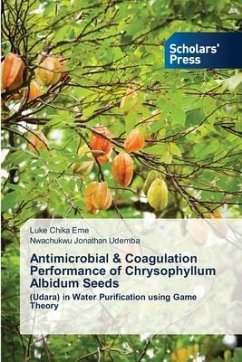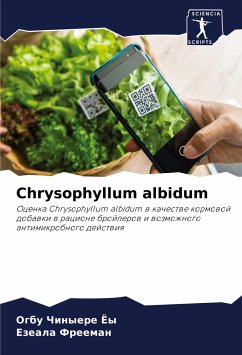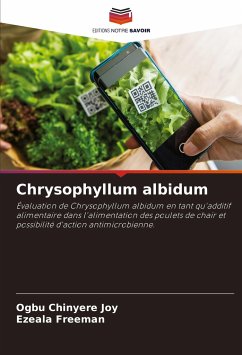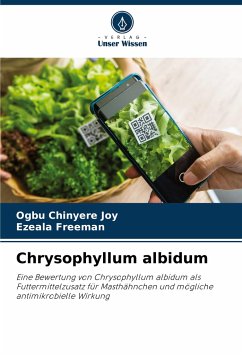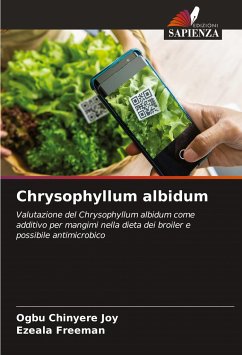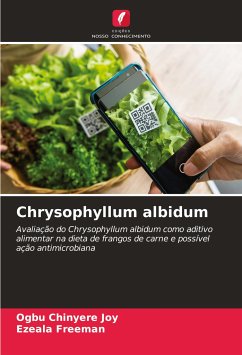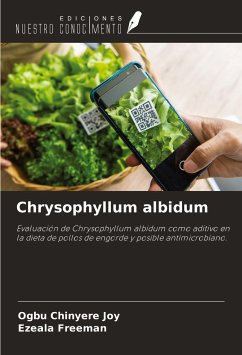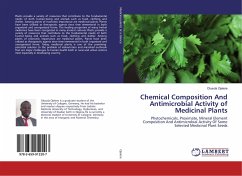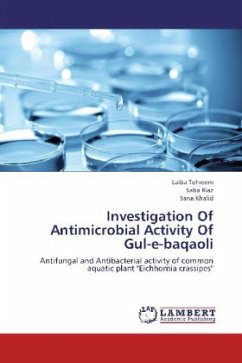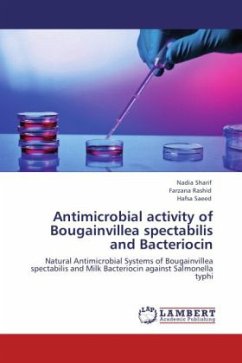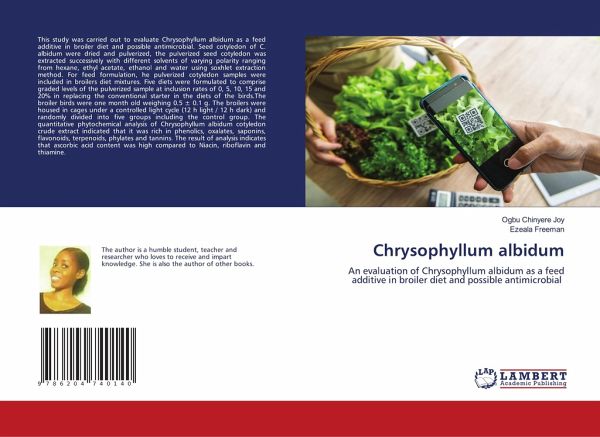
Chrysophyllum albidum
An evaluation of Chrysophyllum albidum as a feed additive in broiler diet and possible antimicrobial
Versandkostenfrei!
Versandfertig in 6-10 Tagen
40,99 €
inkl. MwSt.

PAYBACK Punkte
20 °P sammeln!
This study was carried out to evaluate Chrysophyllum albidum as a feed additive in broiler diet and possible antimicrobial. Seed cotyledon of C. albidum were dried and pulverized, the pulverized seed cotyledon was extracted successively with different solvents of varying polarity ranging from hexane, ethyl acetate, ethanol and water using soxhlet extraction method. For feed formulation, he pulverized cotyledon samples were included in broilers diet mixtures. Five diets were formulated to comprise graded levels of the pulverized sample at inclusion rates of 0, 5, 10, 15 and 20% in replacing the...
This study was carried out to evaluate Chrysophyllum albidum as a feed additive in broiler diet and possible antimicrobial. Seed cotyledon of C. albidum were dried and pulverized, the pulverized seed cotyledon was extracted successively with different solvents of varying polarity ranging from hexane, ethyl acetate, ethanol and water using soxhlet extraction method. For feed formulation, he pulverized cotyledon samples were included in broilers diet mixtures. Five diets were formulated to comprise graded levels of the pulverized sample at inclusion rates of 0, 5, 10, 15 and 20% in replacing the conventional starter in the diets of the birds.The broiler birds were one month old weighing 0.5 ± 0.1 g. The broilers were housed in cages under a controlled light cycle (12 h light / 12 h dark) and randomly divided into five groups including the control group. The quantitative phytochemical analysis of Chrysophyllum albidum cotyledon crude extract indicated that it was rich in phenolics, oxalates, saponins, flavonoids, terpenoids, phylates and tannins. The result of analysis indicates that ascorbic acid content was high compared to Niacin, riboflavin and thiamine.





